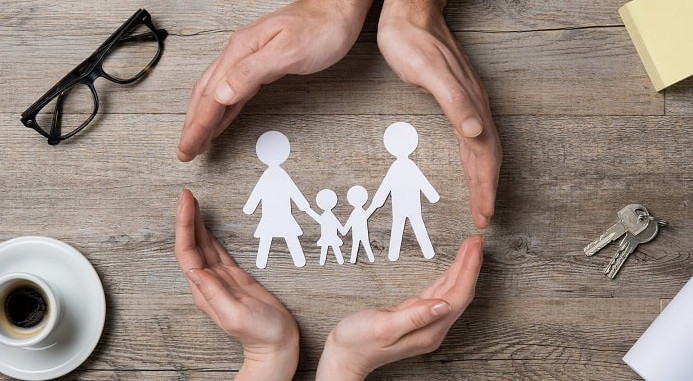How does family counseling work? Is it effective?
What is family counseling and why is it necessary? It is possible for family members to have different behavioral and personality traits. When these differences are not resolved properly, they can result in a divorce or an emotional separation between family members. Challenges cannot be solved on their own. Oftentimes, a family counselor can solve small challenges before they become serious ones. Our purpose in this article is to examine what family counseling is, how it is done, and why it should be taken seriously.
How does family counseling work?
Creating and maintaining healthy family relationships can be achieved through family counseling. As part of this process, the consultant investigates the problems and challenges of the family and offers solutions. There may be psychological, behavioral, or emotional challenges.
When one family member has a challenge and the family is out of balance because of him, all family members will try to restore balance. The same principles apply to family counseling solutions.

What is the difference between counseling and family therapy?
In both cases, the goal is to help families solve problems by talking and finding a solution that works for them. In general, therapists use more professional treatment methods and act more professionally.
How does family counseling work?
Depending on the preferences of the family members, different types of family counseling are available. These methods are examined in the following paragraphs.
1. Practical advice
This method involves family members talking to a counselor for 8 to 30 sessions. Families with children or teenagers who have behavioral or emotional problems are encouraged to attend these weekly sessions. During these meetings, family members learn how to deal with a child or teenager’s problem and how to improve their relationship.
2. Multisystem consultation
Families with children or teenagers with behavioral or emotional disorders also use this method. Families use this method when their child is exhibiting the same wrong behaviors outside the home environment, such as at school or kindergarten. In this type of consultation, broader issues are examined and diverse solutions are offered.

3. Counseling between generations
Family disputes are often caused by generation gaps between parents and children. Using what they’ve learned from the past, parents try to solve their child’s current problems. By using this method, the counselor examines how this parental approach has affected the children and what problems it has caused.
In this method of counseling, behavioral patterns and challenges between generations are addressed. Because the family has a recurring pattern, the counselor can probably predict the problems the family will face in the future.
Counseling for strategic family relationships
Using this treatment method, family interaction patterns are changed over a short period of 12 to 16 sessions. Counselors examine the family problems that have affected the children and led to their behavioral problems in these meetings.
Treatments based on structure
The consultant examines and solves family-related problems using this method. There is a clear boundary between each family member in the hierarchy created by the consultant. Rather than focusing on the behaviors that caused the problem, structural therapy focuses on the problematic family structure.
How does family counseling benefit families?
Using counseling services has different advantages for different families. The following are some of the most common advantages of family counseling:
Establishing clear boundaries between family members;
Relationships with family and friends are lost;
Family roles should be defined correctly for all members;
Intimacy between family members;
Providing family members with the tools to communicate with one another and solve problems together;
Reducing tensions between members by eliminating unnecessary actions and reactions;
Communicating and expressing feelings between members;
Resolving tensions between siblings or between parents and children;
Children and adolescents can benefit from family counseling. Problems such as these include:
Disorders of behavior;
The use of drugs;
Abuse of other family members or even other people;
depression
How effective is family therapy?
Several studies have been conducted on the effectiveness of family counseling, and they all agree that it is effective. In 2018, a study found that family-oriented approaches such as counseling and parent training have solved the following problems:
Problems with sleep, feeding, and dependency in babies;
Neglect and abuse of children;
Challenges related to behavior;
Disorders of sleep or eating;
Mental health problems in adolescents.
Adolescents in families participating in these programs reported fewer internal and external problems. Also, parents have reported that they have learned parenting methods and their family has become more intimate.
What happens during a counseling session?
Online or in-person family counseling sessions can be conducted at home or in a clinic. Sometimes the counseling process will include a number of individual meetings as well as group meetings. During these meetings, either all family members are present or they speak to the counselor individually. Each session lasts 50 minutes and is held once a week.
During the meeting, family members will discuss their problems and concerns, so it is important to choose a counselor with whom they feel comfortable and who they can trust. The counselor or therapist listens to the family members and diagnoses the problem; sometimes it is necessary to explain the problem and sometimes he starts the treatment process without explaining it. The counselor plans the treatment and talks with the family members during the sessions, as well as giving them exercises or homework until the following session.
Is a family counselor right for us?
Families share their most private secrets with their therapists, so they need to be trustworthy and comfortable with their clients. After talking to several therapists, family members may find the right one. You should change your advice if you think it needs to be changed.
There are no specific characteristics of a good therapist; someone who is good to you may not be a good therapist to another family. Finding the right therapist requires trial and error. Here are some tips for finding a good therapist:
Ask your acquaintances for advice if they have experience with family counseling.
Consult the internet, meet different consultants, and read user reviews.
Consult your family doctor for advice.
Teachers and school officials may also know a suitable therapist for your child.
When you have found a consultant, contact him and ask him if he would be willing to meet for an introduction. During the meeting, check the following:
How does the therapist approach your consultation and what is his style?
Is there an interval between the sessions the therapist plans for you and how long will the treatment last?
Can your family afford the cost of a therapist’s visit?
If all family members trust him and feel comfortable with him.
In your first meeting, you may not find all the answers to these questions. You should change your therapist as soon as you realize that he or she is not able to help you.


